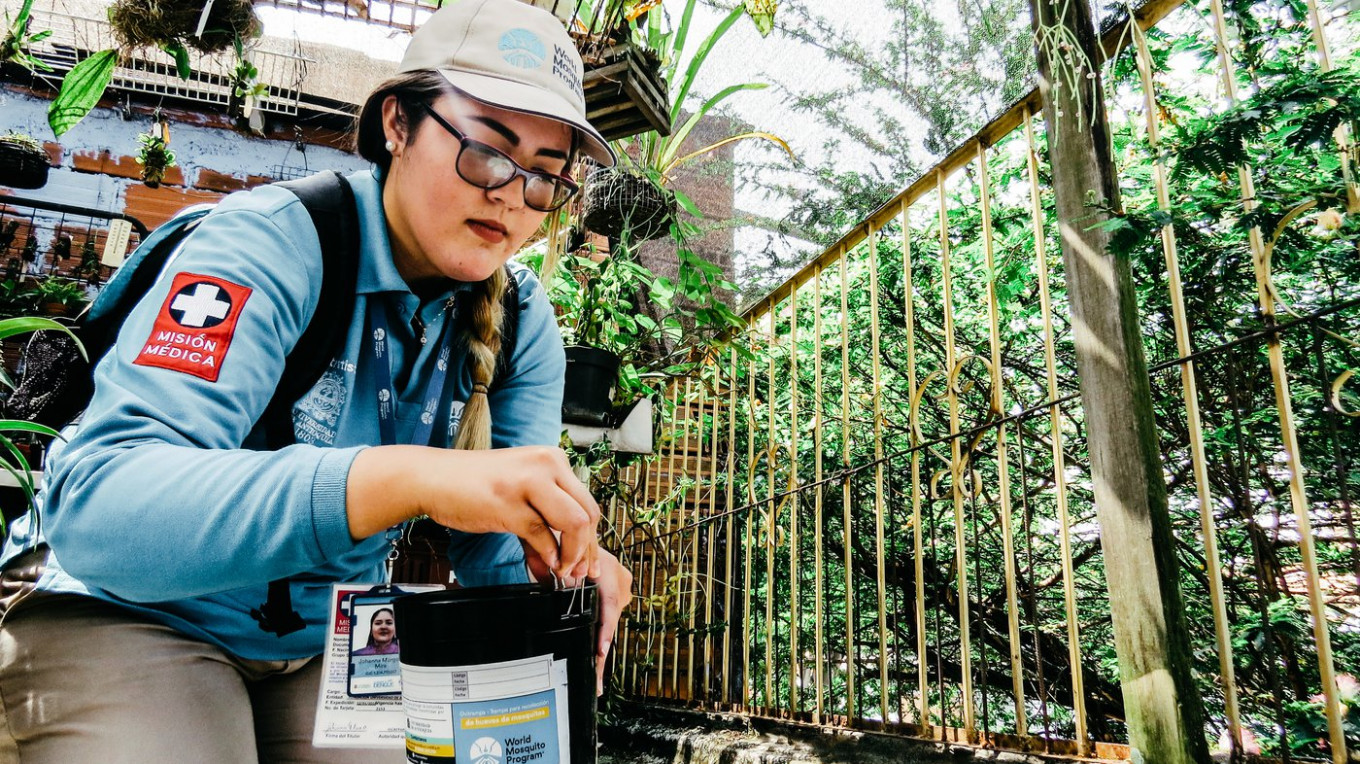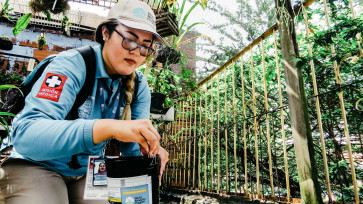Popular Reads
Top Results
Can't find what you're looking for?
View all search resultsPopular Reads
Top Results
Can't find what you're looking for?
View all search resultsRemembering the biosecurity aspects of Wolbachia technology
If the Wolbachia technology in Yogyakarta is applied in five big cities, caution needs to be increased, not only in terms of human health but also in terms of environmental aspects.
Change text size
Gift Premium Articles
to Anyone
M
any aspects of the Wolbachia technology to fight dengue fever have been discussed in the media and scientific forums since the Health Ministry announced its plan to spread mosquitos infected with the bacteria in five cities after the success of an initial project in Yogyakarta.
It seems that our attention to the biosecurity aspects of the method has not been adequate to prevent this useful technology from causing public concern and problems in the future.
No description of the Wolbachia bacteria used in the project was found in the scientific writings of the Gadjah Mada University (UGM) School of Medicine research team, which conducted its research in Indonesia from the first publication in 2018 regarding the research protocol in the journal Trial (KL Anders et al) until the last publication in 2023 in the journal Global Health Action (C Indriani et al).
Luckily, at a Zoom seminar on Nov. 19 that was organized by the Indonesian Disease Eradication Association (P4I), entomologist Warsito Tantowijoyo, a core member of the UGM team, disclosed that the Wolbachia bacteria used in the trial was brought from Australia in 10,000 Aedes mosquito eggs. The eggs were initially flown into Indonesia via Bali but were denied entry. They were finally cleared to enter Indonesia via Jakarta following official procedures.
Why from Australia? Because the UGM research was carried out in collaboration with the Institute of Vector Borne Disease at Monash University. The Australian team previously succeeded in applying Wolbachia technology in the city of Townsville (SL O'Neill et al, 2018) and Cairns (PE Ryan et al, 2020), both in Australia.
The UGM team insisted that the Aedes mosquitoes used in the project were local ones because they hatched from the eggs of local mosquitos that had mated with mosquitos from Australia. However, there is no further information about the Wolbachia bacteria in mosquito eggs brought in from Australia. Was it replaced with local Wolbachia bacteria? Apparently not.
Wolbachia, like bacteria in general, has viruses called phages (BN Kent & SR Bordenstein, 2010). Genetic engineering of bacterial hosts can be done with phages. The patent for genetic engineering of Wolbachia bacteria using its phage was issued in 2017 and is owned by Vanderbilt University in the United States under the names of inventor SR Bordenstein, et al.



















